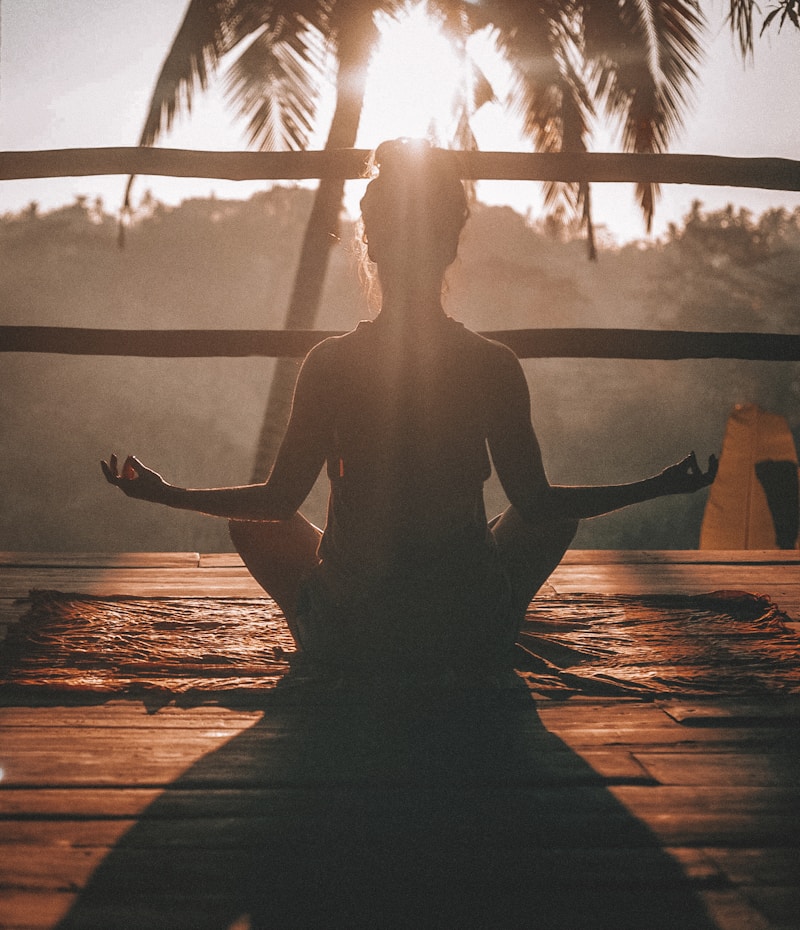How you start your morning often determines how the rest of your day unfolds. While this might sound like an oversimplification, countless successful individuals and psychological studies confirm that intentional morning routines create a powerful foundation for productivity, mental clarity, and overall life satisfaction. The beauty of morning rituals isn't that they need to be elaborate or time-consuming—it's that they provide structure, purpose, and a sense of control before the chaos of daily demands takes over.
If you've been struggling with motivation, feeling scattered throughout your days, or simply want to elevate your lifestyle, developing a personalized morning ritual might be the transformative practice you've been searching for. Let's explore how to create morning habits that genuinely serve your self-growth journey rather than becoming just another source of pressure.

Why Morning Rituals Matter for Self-Improvement
According to research on habit formation, the routines we establish during specific times of day become anchored in our neural pathways, making them easier to maintain over time. Mornings are particularly powerful because your willpower and decision-making capacity are at their peak after rest, before the day's stresses deplete your mental resources.
Morning rituals serve multiple psychological purposes. They create a buffer between sleep and the demands of your day, allowing you to transition mindfully rather than reactively. This intentional start helps reduce anxiety, as you're operating from a place of choice rather than obligation. Additionally, completing even small meaningful tasks first thing in the morning generates momentum and a sense of accomplishment that carries throughout your day.
Beyond the psychological benefits, morning routines support physical health. Whether it's hydration, movement, or nourishing breakfast choices, the habits you establish early set the tone for how you'll treat your body for the remaining hours. This holistic approach to mornings—addressing mental, emotional, and physical needs—creates the comprehensive foundation necessary for sustainable self-improvement.
Essential Elements of an Effective Morning Routine
There's no one-size-fits-all morning ritual, but certain elements consistently appear in routines that people find most beneficial. The key is selecting components that resonate with your personal goals and lifestyle rather than forcing yourself into someone else's ideal schedule.
- Hydration first: After hours without water, your body needs hydration before coffee or food. Starting with a glass of water jumpstarts your metabolism and helps clear mental fog.
- Movement of any kind: This doesn't mean an intense workout. Gentle stretching, yoga, a short walk, or even dancing to one favorite song activates your body and releases endorphins.
- Mindfulness practice: Whether meditation, journaling, or simply sitting quietly with your coffee, spending even five minutes in reflective stillness centers your mind.
- Nourishment: Eating a balanced breakfast fuels both body and brain. Even if you're not hungry immediately, having something nutritious within the first few hours matters.
- Intention setting: Taking a moment to identify your top priorities or set an intention for the day provides direction and purpose.
- Limited technology exposure: Delaying the scroll through social media or email allows you to focus on yourself before absorbing others' demands and opinions.

Building Your Personalized Morning Practice
Creating a morning ritual that actually sticks requires honest self-assessment and gradual implementation. Many people fail at morning routines because they try to overhaul everything at once or adopt practices that don't align with their natural rhythms and genuine preferences.
Start by evaluating your current morning patterns without judgment. What time do you naturally wake up? What's the minimum time you need before leaving for work or starting daily responsibilities? What activities genuinely make you feel good versus what you think you should do? This reflection from self-awareness creates the foundation for sustainable change.
Begin with one small, non-negotiable habit. Perhaps it's making your bed immediately upon waking, or drinking that glass of water, or spending three minutes stretching. Once this single habit becomes automatic—typically after three to four weeks—add another element. This incremental approach prevents overwhelm and allows each practice to truly integrate into your lifestyle rather than feeling like another task on an endless to-do list.
Consider your chronotype as well. If you're naturally a night owl, forcing a 5 AM wake-up time might work against your biology rather than with it. The goal isn't to wake earlier necessarily, but to use whatever morning time you have more intentionally. A meaningful 30-minute routine starting at 7 AM beats a resentful 90-minute routine starting at 5 AM every time.
Common Morning Ritual Mistakes to Avoid
Even with the best intentions, several common pitfalls can sabotage your morning routine efforts. Recognizing these ahead of time helps you navigate around them rather than abandoning your practice entirely when challenges arise.
Perfectionism ranks as the top routine killer. Missing a day or skipping an element doesn't mean failure—it means you're human. Life happens. What matters is returning to your practice without self-criticism. Some mornings you'll do the full routine, other mornings you'll manage just one piece, and occasionally you'll do none of it. All of this is normal and acceptable.
Another mistake is creating routines based on obligation rather than genuine desire. If you hate running but force yourself to jog every morning because successful people do it, you'll eventually quit. Instead, find movement you actually enjoy. The same applies to meditation, journaling, or any other practice. There are countless ways to achieve similar benefits—choose methods that feel good to you.
Over-scheduling your mornings also backfires. If your routine requires everything to go perfectly and leaves no buffer time, a single disruption derails everything. Build in flexibility and cushion time so that unexpected delays don't create stress that defeats the entire purpose of your intentional morning.

Adapting Your Routine Through Different Life Seasons
Your morning ritual shouldn't remain static throughout your life. As circumstances change—new jobs, relationships, parenthood, health challenges, or different seasons—your routine needs to evolve accordingly. This flexibility demonstrates wisdom rather than weakness.
During particularly demanding periods, scale back to your core essentials. What are the absolute non-negotiables that keep you grounded? Perhaps it's just that glass of water and five minutes of deep breathing. That's enough. During less stressful seasons, you can expand and experiment with additional practices.
Different days of the week might warrant different approaches too. Your Tuesday morning before work differs from your Saturday morning off. Creating variations—perhaps a weekday routine and a weekend routine—honors the reality that not all mornings serve the same purpose. The consistency comes from having intentional practices, not from doing identical things every single day.
Measuring Success Beyond Productivity
In our achievement-oriented culture, it's tempting to judge your morning routine by how much you accomplish or how closely you adhere to it. However, the true measure of a successful morning practice isn't productivity—it's how you feel.
After maintaining your routine for several weeks, reflect on these questions: Do you feel more centered throughout your day? Are you less reactive to stress? Do you experience greater clarity about your priorities? Are you treating yourself with more compassion? These internal shifts matter far more than checking boxes or maintaining perfect streaks.
Your morning ritual succeeds when it serves your wellbeing rather than becoming another source of pressure. If your routine starts feeling like a burden or generates guilt when missed, something needs adjustment. The purpose is to support your self-improvement journey, not add stress to it.
Conclusion: Your Morning, Your Choice
The power of morning rituals lies not in following someone else's formula but in discovering what genuinely supports your growth and wellbeing. Whether you have fifteen minutes or two hours, whether you wake at dawn or mid-morning, you can create meaningful practices that transform how you experience each day. Start small, stay consistent with your core elements, and remain flexible enough to adapt as life changes. Your morning ritual is a gift you give yourself—an investment in the person you're becoming and the life you're building. Make it count, make it yours, and watch how this one simple practice ripples positive change throughout every area of your life.
Follow Us: For more updates, stories, and partner links — visit our official Facebook Page and explore Our Sister Sites.
No comments:
Post a Comment